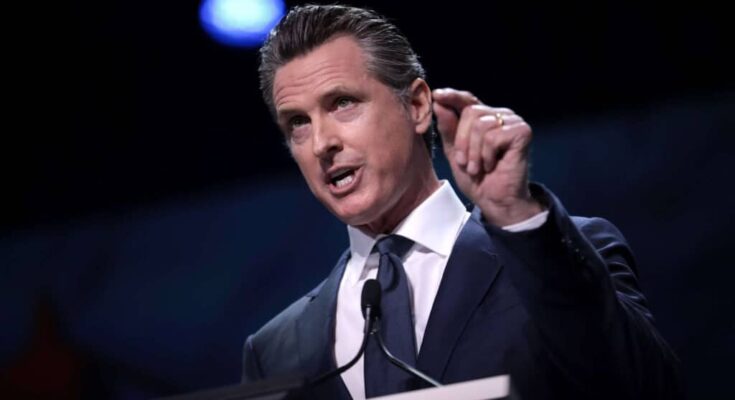
California Governor Gavin Newsom has rejected a proposed law aimed at AI safety. On Sunday, he vetoed the bill, which had faced strong pushback from the tech industry. Tech companies argued that the law could harm innovation and push AI businesses out of California.
Governor Newsom explained his decision by saying the bill did not consider how AI is used in different situations. He said it treated all AI systems the same, whether they were used for important decisions or simple tasks. The bill would have enforced strict rules on all AI systems, even those with basic uses, as long as they were part of a large network.
Governor Newsom asks to “develop workable guardrails”
Governor Newsom has called on top experts in generative AI to help California create “workable guardrails.” He wants these experts to focus on practical, science-based strategies to understand and guide AI development. In addition, he instructed state agencies to broaden their evaluation of risks that AI might pose, especially those that could lead to severe consequences.
Generative AI, which can produce text, images, and videos based on open-ended questions, has sparked both excitement and concern. While it opens up new possibilities, there are fears that it could replace jobs, disrupt elections, or even become so powerful that it leads to dangerous outcomes.

BREAKING NEWS : California blocks a major law on AI regulation!

Despite broad support, Governor Gavin Newsom vetoed the bill, saying it was too broad and not targeted enough
.
Tech companies are upset, but others welcomed it!
#AI #Tech #Innovation #California… pic.twitter.com/kEgsfYo71x
— Experts Informatique FR (@expertsinfofr) September 30, 2024
Democratic State Senator Scott Wiener, who wrote the bill, argued that laws are needed to protect the public before AI grows too large or uncontrollable. As California’s AI industry expands quickly, some leaders have worried about the impact on the future of these companies if the bill had passed.
After the veto, Wiener said it makes California less safe. He expressed concern that AI companies developing powerful technology would now face no firm restrictions. He also noted that relying on voluntary commitments from the industry is not effective, as they are often not enforceable and rarely serve the public well.
The Chamber of Progress called the bill a ‘kill switch’
The Chamber of Progress, a tech industry group, supported Governor Newsom’s veto, saying that California’s tech industry flourishes with competition and openness.
The bill would have imposed safety testing on many advanced AI models, particularly those with development costs exceeding $100 million or requiring substantial computing power. It also aimed to require AI developers to include a shutdown mechanism for emergencies, effectively creating a “kill switch.”
The bill proposed creating a state agency to oversee the development of “Frontier Models,” AI systems that surpass the capabilities of current advanced models.
It faced strong opposition from various groups, including major tech companies like Google, Microsoft-backed OpenAI, and Meta Platforms. All of these companies, which are actively developing generative AI models, expressed concerns about the legislation.




